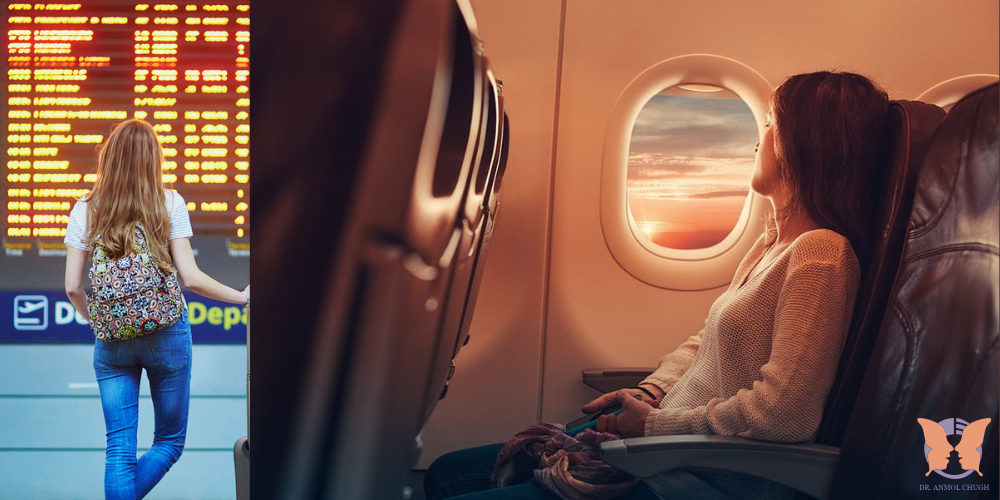
5 Things You Should Take Care of When Travelling to Another Country for Cosmetic Surgery
Cosmetic surgery tourism is on the rise. Every year, thousands of people travel across borders seeking high-quality, cost-effective cosmetic procedures from renowned surgeons. Whether you’re flying in for a facelift, liposuction, rhinoplasty, or a mommy makeover, planning for an international surgery trip involves more than just booking flights and choosing the right doctor.
When you’re in a foreign country—perhaps for the first time—you need to be extra vigilant about documentation, communication, accommodation, and even electrical compatibility. In this blog, we’ll walk you through five crucial things to take care of before boarding that plane for your cosmetic transformation abroad.
1. Medical Documents
Why it matters: Your health history is your safety net. Even if you’ve already consulted with your surgeon over video or email, carrying your medical documents in person is non-negotiable.
What to carry:
– Previous blood tests, imaging (like ultrasound or mammograms), and ECG reports
– A list of medications you are taking, including dosages
– Allergies to medications or anesthesia
– Doctor’s notes or prescriptions from your home country
Pro tip: Carry both printed copies and digital backups on your phone or cloud storage. If possible, translate critical documents into the language of your destination country (or English, if traveling to India or other international hubs).
2. Valid ID Proof and Passport
Why it matters: Identity verification is essential for travel, hospital admission, and local registration in some countries. Without the correct ID, you might face delays or, worse, denial of services.
What to carry:
– A passport valid for at least 6 months from your date of arrival
– A visa (medical or tourist) based on your host country’s rules
– Printed copies of your flight tickets and visa approval letters
– A second form of ID (e.g., driver’s license, national ID card)
Pro tip: Store your original ID and passport securely in your hotel safe and carry photocopies or digital scans when you go out. For extra safety, email yourself a scanned copy of all your travel documents.
3. Comfortable and Accessible Accommodation
Why it matters: Your recovery environment will influence not just how fast you heal, but how you feel emotionally and mentally. A noisy or uncomfortable hotel can disrupt your sleep, make hygiene difficult, and elevate stress levels.
What to look for:
– Proximity to the surgical center or hospital
– Ground-floor or elevator access to avoid stairs post-surgery
– In-room dining or food delivery services
– Cleanliness, privacy, and a calm atmosphere
Pro tip: Book accommodation with flexible check-in/check-out policies. If possible, find places that are experienced in hosting medical tourists—they may offer medical-grade pillows, transport to appointments, or even basic nursing support.
4. Medical Insurance and Travel Coverage
Why it matters: Many people assume their regular health insurance covers overseas surgery—but that’s rarely the case. Without appropriate coverage, even minor complications can become financially draining.
What to check:
– Does your medical insurance cover elective procedures overseas?
– If not, purchase a travel insurance plan that includes medical treatment and post-op emergency coverage
– Look into “complications insurance” for cosmetic surgery abroad—it’s a niche but growing market
– Check cancellation policies for surgery and travel bookings in case of last-minute changes
Pro tip: Always read the fine print. Some policies exclude cosmetic procedures or complications resulting from elective surgeries.
5. Travel Adapter and Charging Essentials
Why it matters: It may seem trivial, but being unable to charge your phone, tablet, or medical device in a foreign country can add unnecessary stress. Different countries have different plug types, voltages, and outlets.
What to carry:
– A universal travel adapter with USB ports
– Power bank (for airport delays or in-clinic waiting rooms)
– Charging cables for all your essential devices
– Optional: extension cord if you expect limited plug access in your room
Pro tip: Look up your destination country’s plug type before departure. In countries like India, the common plug types are C, D, and M—different from what’s used in the US, UK, or Europe.
Cosmetic surgery abroad offers an exciting opportunity for self-enhancement combined with travel. But with that opportunity comes responsibility. When you’re far from home, the margin for error is small—so every bit of preparation counts.
By keeping your medical documents and IDs ready, choosing the right accommodation, ensuring proper insurance coverage, and packing smart travel tech like adapters, you give yourself the best chance at a smooth and safe surgical journey.
Before you go, always stay in touch with your surgeon’s team. Ask for a detailed itinerary and pack based on their advice. With preparation, the distance becomes just a detail—not a hurdle. Here’s to a safe trip and a beautiful transformation.
Dr. Anmol Chugh is a board-certified plastic surgeon specializing in treating international patients with personalized care. He believes in combining world-class results with holistic patient experiences—before, during, and after the procedure.